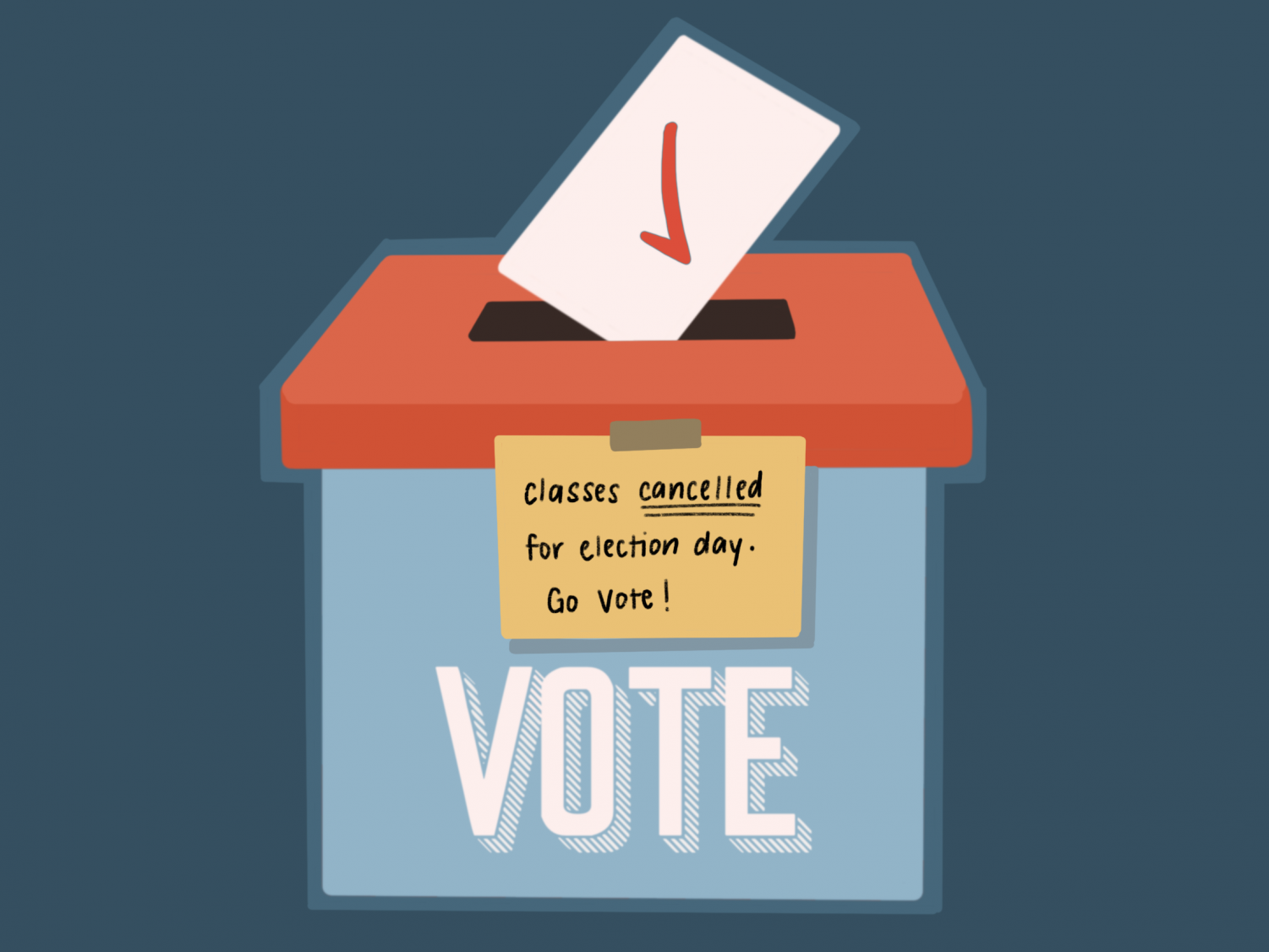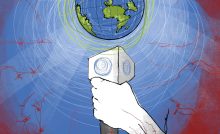Opinion | Instructors, cancel class on Election Day


With Election Day less than a week away, anxiety is intensifying.
An Allegheny County contractor distributed nearly 30 thousand incorrect ballots to voters. People are waiting in line for hours to vote early at polling places. The Pennsylvania Supreme Court ruled last week that mail-in ballots could not be rejected solely due to signature mismatches, though it’s concerning that this even made it to the Supreme Court in the first place. Many student voters are still concerned about the status of their mail-in ballots, or what the polls might look like on Election Day for them.
Voter turnout in college-aged students is traditionally low. Only about 48% of college-aged students voted in 2016, and this is a few points higher than 2012. Citing that they were “too busy or had a conflict,” 47% of young non-voters said this was why they didn’t vote in 2016. Results such as these, in addition to student advocacy, have pushed some universities — including Brown University, American University, University of Utah and Colorado College — to cancel classes entirely on Election Day. Pitt is not mandating that instructors cancel class on Election Day, but individual instructors still have the ability to cancel their classes on Nov. 3. And they should.
Voter accessibility and suppression — factors that contribute to lower turnout rates — have always been a pressing issue, but their effects are heightened this election cycle. It’s vital, then, that we collectively work to make voting as accessible as possible to everyone.
In rural areas, some people have to drive over an hour to their polling location. In New York City, some voters waited in line for over five hours for early voting — casting a bleak picture of what voting on Election Day might look like. Communities of color — specifically Black and Indigenous communities — often face disproportionate voter suppression. Not every Pitt student chose to, or could feasibly, return to campus this fall. This means students could be anywhere, facing voting barriers different than what they’d typically face in Pittsburgh.
It’s also important, in the time of COVID-19, for young people to consider working polls. In the 2016 general election, 58% of poll workers were over 60 — an age group at a higher risk for COVID-19 complications. Some states faced a shortage of poll workers in the 2020 primaries, which decreased voter accessibility by default. The Centers for Disease Control and Prevention have offered guidelines to make the polling environment safer and cleaner, but there’s always risk involved. Canceling class gives students the chance to do this, and the entire community benefits.
Still, professors might face time constraints on their coursework by canceling class. At Pitt, we’re already working on a shortened semester. Instructors are shoving 16 weeks worth of instruction into 14 — and being primarily online seems to make school work and teaching harder for everyone. Many of us feel like this semester has been a constant, stressful game of catch-up. It’s true that canceling class on Election Day might push professors further behind schedule, and they might not be able to fit all the course material in exactly how they’d planned. There might not be a great way around this, but frankly, one reading, small quiz or lecture is not more important than voting.
Scheduling an asynchronous class — where students complete coursework for the day on their own time — isn’t enough, either. In a lot of ways, this lets professors off the hook on Election Day, but doesn’t have the same effect on students. Students will still have to worry about getting the work done, or watching a lecture, before the day is over. The same goes for making class attendance “optional.” I know for myself, especially as a younger student, I never saw optional classes as truly optional. I always wanted to attend anyway so that the instructor would take note of my dedication. I suspect a handful of other students feel the same sort of pressure.
I know to some instructors, 90 minutes seems insignificant. I know it’s hard to believe that canceling one class, or postponing one assignment, could be the difference between whether or not a student chooses to vote — and in some cases, this might be true. But it’s not really anybody’s place — or business — to decide what some else’s voting barriers might look like.
Canceling class on Election Day is a bipartisan gesture of respect toward democracy. It’s also a gesture of respect toward students — it acknowledges that you might not know what their voting situation is like, but that you want to give them every opportunity to cast their ballot.
There are already so many barriers in the 2020 election. Pitt instructors, please don’t make a discussion board post and a lecture another one.
Leah writes primarily about mental health and the spices of the world. Write to Leah at LEM140@pitt.edu.
Recent Posts
SGB addresses concerns about ICE presence on campus, hears SJP lawsuit against administration, approves governing code bill
At its weekly meeting on Tuesday at Nordy’s Place, Student Government Board heard concerns about…
ACLU of Pennsylvania sues Pitt over SJP suspension
The ACLU of Pennsylvania filed a federal civil lawsuit against the University of Pittsburgh and…
Marquan Pope: The ultimate shark
One of the most remarkable things about sharks is that an injury doesn’t deter them.…
Who Asked? // Do we really get a summer vacation?
This installment of Who Asked? by staff writer Brynn Murawski mourns the seemingly impossible perfect…
Notes From an Average Girl // Notes from my junior year
In this edition of Notes From an Average Girl, senior staff writer Madeline Milchman reflects…
Meaning at the Movies // The Power of the Movie Theater
In this edition of “Meaning at the Movies,” staff writer Lauren Deaton discusses her love…

